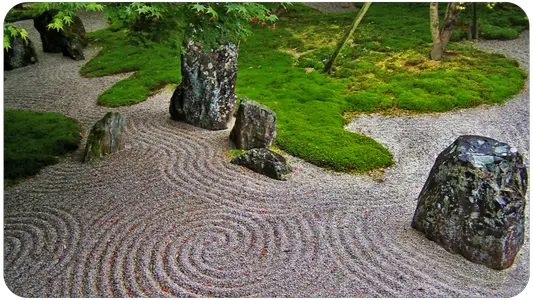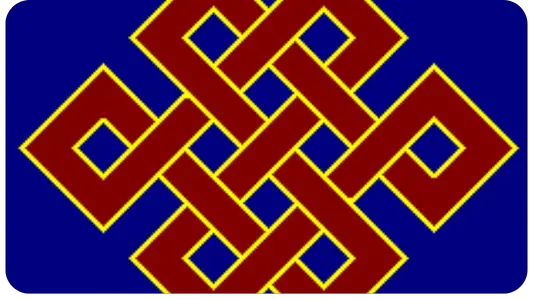Within the framework of Hinduism and Buddhism, Asita was a hermit ascetic of ancient India.
Etymology and transliterations
Asita, in the AITS system (international alphabet for transliteration of Sanskrit).
असित, in Sanskrit devanagari script.
Pronunciation:
/ásita/ in classical Sanskrit.1.
/asite/ in modern Indian languages.
Etymology: 'dark, black'. Apparently the word sita ('white') comes from asita, and this would not be a compound of a and sita (it is the same case as the word sura, which was made to come from the very ancient word asura, of Indo-Iranian origin, prior to Sanskrit).
It appears in the Rig-veda (the oldest text of Indian literature, from the middle of the 2nd millennium B.C.). It is related to the river Ásiknī. As early as the time of the Majabhárata (3rd century BC), the invented word sita already meant 'light, white', the opposite of asita ('dark, black') and was used to refer to the light half of the lunar month.1
Meanings of Asita
The Sanskrit-English Dictionary by the British Indologist Monier Monier-Williams (1819-1899) presents several meanings of the word:1
ásita (esdrújula word).
The name of the author of verse 9.5-24 of the Rig-veda, who is said to be a descendant of Kashiapa. He is also called Devala (according to the Rig-veda-anukramaniká commentary) or Asita Devala (according to the Majabhárata and the Jari-vamsa).
name of the river Akesines (later called Chandra Bhaga) in the Panjab, according to Rig-veda 8.20.25 called river Asiknī́ in Rig-veda 10.75.5.
name of the lord of darkness and magic. According to the Átharva-veda, the Shatapatha-bráhmana, and the Asualaiana-srauta-sutra.
name of a type of black snake, according to the Átharva-veda.
name of an astrologer and rishi, according to Buddhist literature.
a poisonous animal (supposed to be some kind of rat); according to lexicographers.
name of a mantra (to cure oneself of snakebite), according to the Majábharata (1.2188).
name of one of the wives of the patriarch Daksa, according to the Jari-vamsa.
name of an apsara, according to the Majábharata (1.4819) and the Jari-vamsa (12472).
the planet Saturn, according to the Bṛihat saṃhitā of Varāja Mijira,
name of a man, with the patronymic Vārṣagaṇa, according to the Satápatha-bráhmana (14).
Name of a son of prince Bharata (the brother of the god-king Rama), according to the Ramaiana.
name of a mountain, according to the Majábharata (3.8364) and the Katha-sarit-sagara.
name of a girl who attends the gynaecum (women's apartment), according to lexicographers.
name of the indigo plant, according to lexicographers.
asita (grave word, not esdrújula).
the dark half of the lunar month, according to lexicographers.
a particular intoxicating drink, according to lexicographers.
asitá (acute word).
'unbound', according to the Taittiria-samjitá (7), the Satápatha-bráhmana (14). It is based on the Sanskrit word sitá: 'bondage'. Not to be confused with Queen Sītā, wife of the god-king Rama of the Ramaiana (3rd century B.C.).
Asita in Buddhism
The legend in the "Tipitaka
According to the legend told in the Tipitaka (circa 4th century BC),Asita-also known as Kanjasiri (Kanha Siri)-was a sage who lived in the forests of the Sakia country. He is described as having matted hair (Sutta nipata 689). One day he noticed that the gods were celebrating wildly and asked them why they were so happy.
They replied, "In the Sakia village of Lumbini a bodhisattva has been born, an excellent and incomparable jewel for the welfare and happiness of the human world. That is why we are so happy" (Sutta-nipata, 683).
Anxious to see this child, Asita-who would have been an old man by the time of the Buddha's birth (circa 420 B.C.)-traveled to Kapilavastu, where King Suddhodana welcomed him and gave him the child to hold (mere physical contact with a hermit sage was considered auspicious for a baby).
Being a master in lakkhana mantra (the art of bodily signs, according to the Sutta-nipata, 690) Asita examined the baby and noticed in his body the 32 signs of a great man.
According to Buddhists (Sutta-nipata, 3.11), this would prove that the concept of laksana-vriti ('knowledge of [bodily] signs' or phrenology, today considered a pseudoscience) predates Buddhism.
Asita proclaimed that the baby would "attain full enlightenment (sambodhi), and attain the ultimate purified vision (parama-visuddhi-dassi), and proclaim the truth "due to the compassion of the many" (baju-yam-hita-anu-kampi); according to the Sutta-nipata, 693.
Seeing this, the sakyas became concerned about Asita's sorrowful face and asked him if he had sensed any misfortune in the child's future. Asita replied that he was sad because he knew that due to his old age he would not be able to attend all that was going to happen (Sutta-nipata, 694).
The name Asita would literally mean 'not clinging',[citation needed] while Kanjasiri means 'dark splendor'.
This is the only mention of Asita in the Tipitaka. In ancient India it would have been quite common for a king to invite a holy man to bless and propose a religious name for his newborn son. Similarly, it would be normal for the saint to predict that the prince would become a great man.
Modern additions to the legend
In the 20th century many details were added to this simple legend, each time more detailed and elaborate. It ended up being said that Asita predicted that the baby would become a chakkavattin (a world monarch) or a fully enlightened sage (Buddha). This prediction is absent in the legend presented in the Tipitaka.
The Austrian occultist writer Rudolf Steiner claims - although without providing any proof - that Asita reincarnated as the Simeon mentioned in the Gospel according to Luke (2:25 to 2:35):
That Asita who in the palace of Sudodana had only seen the newborn Bodhisattva, was later reborn in the personality of Simeon
Rudolf Steiner, in his The Gospel according to St. Luke, chapter II; in German Das Lukas Evangelium
For example, the Madrid writer Ramiro Calle (1943-) says: "Even before the child was born, [Asita] had seen with his transtemporal intuition that a Buddha would be born.
Asita would have said a very complete prophecy: "If he assumes to be a king, he will be a universal monarch and even the most powerful kings will respect him; but if he takes the path of renunciation of the worldly, he will attain nirvana and become a perfect enlightened one, a great Buddha. "
Also according to a Buddhist website, Asita was reportedly King Suddhodana's own teacher. When the sage approached to examine him, the baby reportedly placed a foot on the sage's head (which in India is considered a very serious act if the treader is not an avatar).
The sage reportedly bowed prostrate (lying on the floor), and King Suddhodana reportedly did the same, exclaiming, "Son, this is my first act of reverence. "
According to a website that omits to give any bibliographical reference, asita would mean 'the one who is not soft'.
Previous reincarnation of Asita
In the chapter "Devadatta" (in the Lotus Sutra, 20), Buddha reveals that in some previous reincarnation he had learned the same Lotus Sutra from the lips of a sage named Asita, and that this same Asita had reincarnated as the religiously evil Devadatta.
Buddha also predicted that Devadatta would attain enlightenment as a Buddha who would be called the Heavenly King. The religious Nichiren (1222-1282) took that prediction as an example to illustrate that wicked people have the potential to change.
Asita in Hinduism
A mention in the "Bhagavad-guita".
Possibly after the composition of the Tipitaka (circa 4th century BC), a verse in the Bhagavad-guita (which is a small section of the epic-mythological text Majabhárata, circa 2nd century BC) names Asita:
áryuna uvachá
param brahma param dhama
pavitram paramam bhaván
púrusham sasuatam diviam
adi-devam ayam vibhum
ajus tuam rishaiah sarvé
devarsir náradas tathá
asitó devaló viasah
suaiam chaiva bravisi me
ārjunah uvacha: 'Aryuna said'; param: 'supreme'; brahma: 'truth'; param: 'supreme'; dhama: 'refuge, abode'; pavitram: 'pure'; paramam: 'supreme'; bhavan: 'you'; púrusham: 'male'; sasvatam: 'original'; diviam: 'divine'; adi: 'first'; devam: 'god'; a-yam: unborn ('unborn'); vibhúm: 'the greatest'; ahuh: 'they say'; tuam: 'of you'; rishaiah: 'wise'; sarve: 'all'; deva-rishih: 'the wise among the gods'; nāradah: 'Nárada'; tathá: 'also'; asitah: 'Asita'; devalah: 'Devala'; vyasah: 'Viasa'; svayam: 'yourself'; cha: 'also'; eva: 'certainly'; bravisi: 'you are explaining'; me: 'to me'.
Translation
Aryuna said, "You are the supreme truth, the supreme abode, the purest. You are the original, divine, primeval male, the unborn, the greatest. They say [that] about you all the sages: Nárada, Asita, Devala and Viasa, and you yourself are expressing it to me."





